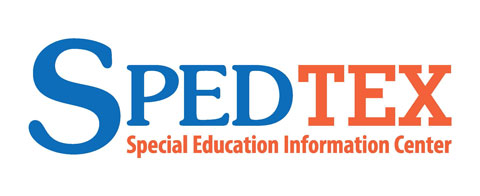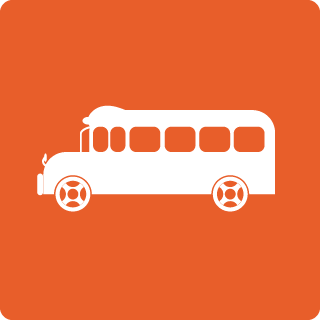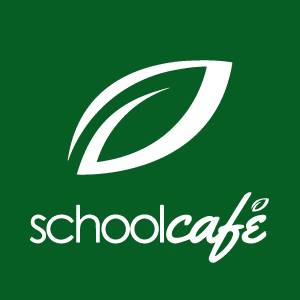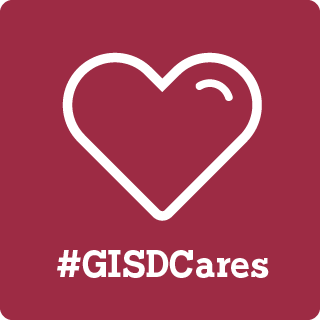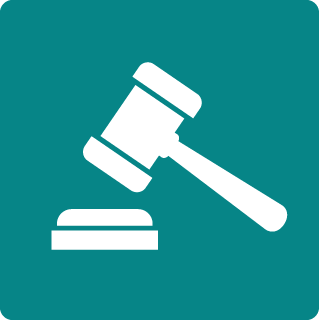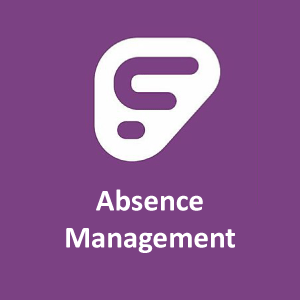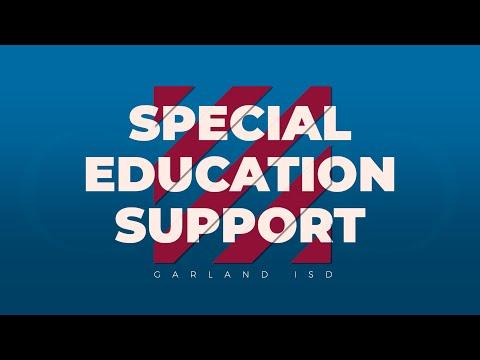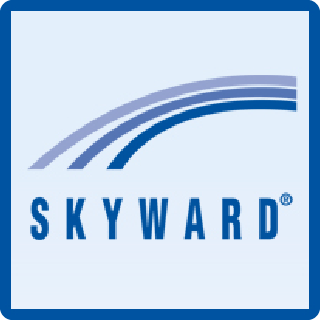
Special Education
Everyone deserves educational opportunities that match their ability to learn. We offer many support programs for children with disabilities from birth through age twenty-one.

What we offer
Our district works to create an environment where children of all learning types succeed. Each campus has a student support team for those struggling behaviorally or academically as well as a team of dedicated professionals for special education.
We provide campus-based Special Education so that our ARD committees can create flexible services and programs designed for the specific children on campus. We encourage our parents to be a part of the process by participating in ARD meetings, asking questions and working closely with their child’s teacher and school.
Please contact your child‘s school if you have a concern.
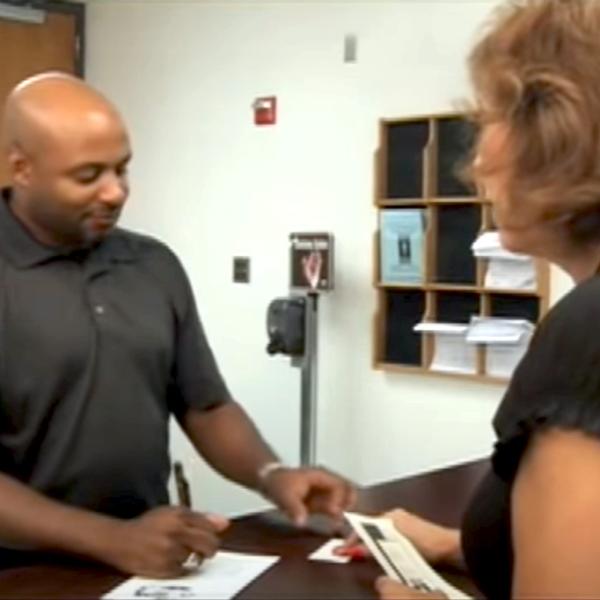
Special Education Referral/Child Find

Transition

Parent workshops
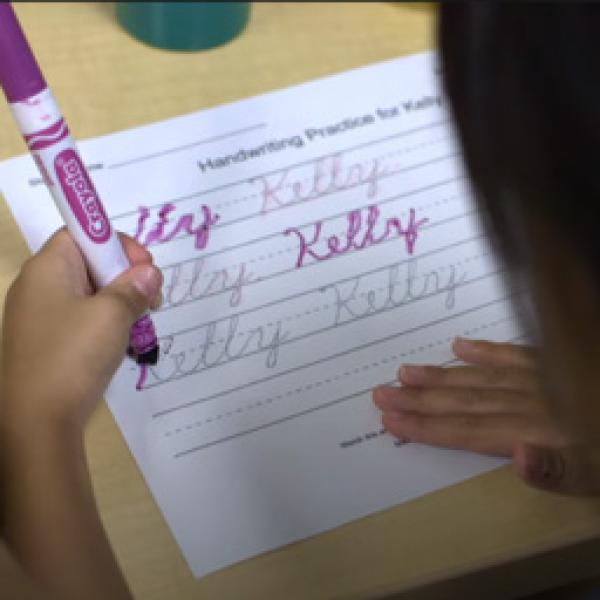
Dyslexia

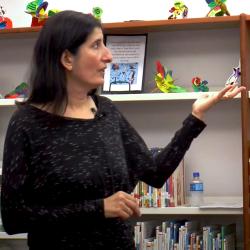
Video resources
Find parent session recordings and other aids on the SPED YouTube channel.
On this page

Special Education Assurance Statements to parents
- Updates in Special Education from the Texas Education Agency
- Updates in Special Education from the Texas Education Agency (Spanish)
- Delayed or denied evaluations & compensatory services
- Delayed or denied evaluations & compensatory services (Spanish)
- Significant Disproportionality State and Federal Activity Updates
- Student Handbook Statement
- Student Handbook Statement (Spanish)
- Texas Transition and Employment Guide (English)
- Texas Transition and Employment Guide (Spanish)
- Dyslexia Handbook 2024 Update - Important Changes
- Dyslexia Handbook 2024 Update - Important Changes (Spanish)
Looking for more? See our additional Special Education Resources.
Special Needs safety decals
The Rowlett Police Department is working with our district to help keep students safe. They have provided special stickers for families to use on their homes and vehicles to help police officers during encounters with community members who are non-verbal, have a mental, emotional or intellectual disability, or have a different special need.
Use of the stickers is voluntary. To request a sticker or get more information, contact Special Education ask your school counselor.
Social events
Meet other parents with special need students, make friends and make connections. Social events for this month are listed below. View a list of all social events.
Workshops
Our district offers a variety of workshops for our parents to attend. Go to our Parent Workshops page to learn more, or see what's coming up this month below.
Areas of disability
Expand AllAuditory impairment (hearing)
Auditory impairment (hearing) means an impairment in hearing, whether permanent or fluctuating, that adversely affects a child’s educational performance but that is not included under the definition of deafness in this section.
Deaf (hearing) means a hearing impairment that is so severe that the child is impaired in processing linguistic information through hearing, with or without amplification that adversely affects a child’s educational performance.
Autism
Autism means a developmental disability significantly affecting verbal and nonverbal communication and social interaction, generally evident before age three, which adversely affects a child’s educational performance. Other characteristics often associated with autism are engagement in repetitive activities and stereotyped movements, resistance to environmental change or change in daily routines, and unusual responses to sensory experiences.
Deaf-Blindness
Deaf-Blindness means concomitant hearing and visual impairments, the combination of which causes such severe communication and other developmental and educational needs that they cannot be accommodated in special education programs solely for children with deafness or children or children with blindness.
Emotional disturbance
Emotional disturbance means a condition exhibiting one or more of the following characteristics over a long period of time and to a marked degree that adversely affects a child’s educational performance.
- An inability to learn that cannot be explained by intellectual, sensory, or health factors.
- An inability to build or maintain satisfactory interpersonal relationships with peers and teachers.
- Inappropriate types of behavior or feelings under normal circumstances.
- A general pervasive mood of unhappiness or depression.
- A tendency to develop physical symptoms or fears associated with personal or school problems.
Intellectual disability
Intellectual disability means significantly subaverage general intellectual functioning, existing concurrently with deficits in adaptive behavior and manifested during the developmental period, that adversely affects a child’s educational performance.
Multiple disabilities
Multiple disabilities means concomitant impairments (such as mental retardation-blindness, mental retardation-orthopedic impairment, etc.), the combination of which causes such severe educational needs that they cannot be accommodated in special education programs solely for one of the impairments. Multiple disabilities do not include deaf-blindness.
Orthopedic impairment
Orthopedic Impairment means a severe orthopedic impairment that adversely affects a child's educational performance. The term includes impairments caused by a congenital anomaly, impairments caused by disease (e.g.; poliomyelitis, bone tuberculosis, etc.), and impairments from other causes (e.g.; cerebral palsy, amputations, and fractures or burns that cause contractures).
Other health impairment
Other health impairment means having limited strength, vitality or alertness, including a heightened alertness to environmental stimuli, that results in limited alertness with respect to the educational environment, that - -
- Is due to chronic or acute health problems such as asthma, attention deficit disorder or attention deficit hyperactivity disorder, diabetes, epilepsy, a heart condition, hemophilia lead poisoning, leukemia, nephritis, rheumatic fever, and sickle cell anemia, and
- Adversely affects a child’s educational performance.
Specific learning disabilities (including Dyslexia)
Specific learning disabilities means a disorder in one or more of the basic psychological processes involved in understanding or in using language, spoken or written, that may manifest itself in the imperfect ability to listen, think, speak, read, write, spell, or to do mathematical calculations, including conditions such as perceptual disabilities, brain injury, minimal brain dysfunction, dyslexia, and developmental aphasia.
Speech or language impairment
Speech or language impairment means a communication disorder, such as stuttering, impaired articulation, language impairment, or a voice impairment, that adversely affects a child's educational performance.
Traumatic brain injury
Traumatic brain injury means an acquired injury to the brain caused by an external physical force, resulting in total or partial functional disability or psychosocial impairment, or both, that adversely affects a child's educational performance. Traumatic brain injury applies to open or closed head injuries resulting in impairments in one or more areas, such as cognition; language; memory; attention; abstract thinking judgment; problem-solving; sensory, perceptual, and motor abilities; psychosocial behavior; physical functions; information processing; and speech. Traumatic brain injury does not apply to brain injuries that are congenital or degenerative, or to brain injuries induced by birth trauma.
Visual impairment
Visual Impairment including blindness means an impairment in vision that, even with correction, adversely affects a child's educational performance. The term includes both partial sight and blindness.
Additional information and resources for parents can be located through the Center for Parent Information and Resources (CIPR) website.
Special Education programs
Expand AllRegular classroom with accommodations/modifications
Instructional and curricular accommodations/modifications recommended by the ARD committee are implemented in the general education classroom. This enables the student to be involved and progress in the general curriculum to the maximum extent possible.
Speech therapy
Speech and language therapy is available to all students, ages three through twenty-one years enrolled in Garland ISD that meet district eligibility criteria as speech impaired. Through evaluation and intervention, the speech-language pathologist helps students with communication disorders in the areas of articulation, language, voice, and fluency.
Content Mastery program (CM) – secondary only
Content Mastery is designed to support special education students in the general education classroom accessing the general curriculum. The student receives direct instruction in the general education setting. During the independent practice of the lesson cycle, the student may attend the CM center if additional help and support are needed.
Inclusion teacher
Inclusion teacher support is an excellent model for assisting students receiving special education services while fully accessing enrolled grade-level curriculum. It is a supplementary aid and service provided by a special education teacher or paraprofessional to support special education students in the general education classroom. The inclusion teacher may provide direct instruction, re-teaching, modifications, collaboration, or assist in other ways that provide support to special education students in collaboration with the general education teacher. The general education teacher is the teacher of record. The special education teacher will:
- Go into the general education class to provide support to the students
- Plan the schedule to meet the needs of the students
- Provide modifications as needed
Resource (CBSE)
The traditional resource classroom is for special education students who are struggling substantially more than struggling grade-level peers and are functioning significantly below grade level. The special education teacher provides direct, simplified/modified grade-level instruction in the core academic areas. The special education teacher is responsible for planning instruction according to the student's IEP.
Behavior Adjustment program (BA)
The Behavior Adjustment program is designed to serve eligible students whose behavior consistently interferes with their educational performance. This program provides a structured learning environment, a social skills curriculum and instruction, and regular contact with parents. The goal of the program is the successful return of each student to the general classroom.
This program also provides direct instruction in appropriate social skills and study skills. The goal of the program is to provide students with the support and encouragement they need to actively participate and remain in the general education classroom. We offer BA at:
- Elementary: Bradfield, Dorsey, Heather Glen Montclair, Roach
- Middle school: Brandenburg, Coyle, Sam Houston, Webb
BASE
Behavior and Academic Support Environment is designed to serve eligible secondary students whose behavior consistently interferes with their educational performance in the least restrictive environment. This program provides a structured learning environment, a social skills curriculum and instruction, and regular contact with parents.\nThe goal of the program is to teach each student the replacement behavior skills needed to successfully to the general classroom. This program also provides direct instruction in appropriate social skills and study skills.The goal of the program is to provide students with the support and encouragement they need to actively participate and remain in the general education classroom.\\nThis program also provides direct instruction in appropriate social skills and study skills. The goal of the program is to provide students with the support and encouragement they need to actively participate and remain in the general education classroom. We offer BASE at:
- Middle school: Brandenburg, Coyle, Sam Houston, Sellers, Webb
- High School: South Garland, North Garland, Naaman Forest, Rowlett, Sachse
Adaptive Behavior and Communications (ABC)
The Adaptive Behavior and Communication programs are designed to meet the needs of students diagnosed with autism spectrum disorders, TBI, or other neurological impairments whose behavior consistently interferes with their educational performance. The focus is on the development of age-appropriate social skills, coping, and communication skills, and academics. The goal of the program is the successful return to the general education classroom to the greatest extent possible. We offer ABC at:
- Elementary: Back, Beaver, Carver, Cooper, Daugherty, Ethridge, Handley, Keeley, Lister, Rowlett, Sewell, Steadham, Stephens
- Middle school: Austin, Brandenburg, Coyle, Jackson, O'Banion, Sam Houston, Schrade, Sellers, Webb
- High School: Garland, South Garland, North Garland, Naaman Forest, Rowlett, Sachse
Applied Learning Environment (ALE)
In ALE classes, practical application of academic skills is taught to maximize achievement at school, at home, and in the community. The ALE program provides an environment that allows for learning that is individualized and appropriate to each student's developmental and functional level. We offer ALE at:
- Elementary: Armstrong, Bullock, Caldwell, Couch, Davis, Freeman, Hickman, Kimberlin, Liberty Grove, Northlake, Pearson, Shorehaven, Shugart, Southgate, Toler, Walnut Glen, Weaver, Williams
- Middle School: Austin, Brandenburg, Bussey, Coyle, Hudson, O'Banion, Sam Houston, Schrade, Sellers, Webb
- High School: Garland, South Garland, North Garland, Lakeview Centennial, Naaman Forest, Rowlett, Sachse
Moving Toward Independence (MTI)
MTI is a specialized class under the ALE program. It is designed to support students who require additional assistance in the areas of self-help and daily living skills. MTI is offered at
Behavioral ALE
ALE is a specialized class under the ALE program. It is designed to provide additional behavioral supports beyond those typically found in the ALE classroom.
Transition services
Vocational Adjustment Class (12th grade plus)
The vocational adjustment class provides special education support to students who are placed on a job with regularly scheduled direct involvement by special education personnel in the implementation of the student's IEP. Students may also receive classroom instruction in job readiness and independent living skills in addition to general academic work. This program shall be used in conjunction with the student's transition service needs and only after Career and Technical Education (CTE) classes have been considered and determined inappropriate for the student.
Transition Learning Center (TLC) (12th grade plus)
The GISD TLC is a special education program designed to support inclusive practices, age appropriate settings, community integration activities, and opportunities for competitive/supported employment. Students entering the TLC will have completed the district's minimum credit requirements for graduation but the ARD/IEP Committee has determined a continued need for special education services leading to competitive/supported employment. The student's parents must be willing to support employment initiatives, non-paid internships, volunteerism and marketable skills training. Preparing for competitive and supported employment will be the primary focus. The ultimate objective is for students to establish daily independent living routines that will be continued after leaving the TLC.
Meeting And Catering Service (MACS) (12th grade plus)
Meeting and Catering Services (MACS) is a GISD special education community-based vocational education training experience for high school students with significant disabilities. This program gives students the opportunity to learn a wide range of job skills in an actual work environment. A job coach facilitates the hands on job training that includes refreshment set ups of conference rooms, operation of a small store selling convenience items, and a mobile beverage and snack service. The campus VAC, in collaboration with other campus special education staff, makes referrals to MACS.
Project SEARCH (12th grade plus)
The Project SEARCH High School Transition Program is an employer-based intervention for high school students with significant disabilities whose main goal is competitive employment. The program combines real-life work experience with training in employability and independent living skills. Individualized placement assistance is provided as an integral part of the program. The hallmark of this demand-side model is complete immersion in the workplace. The program also demonstrates a novel collaborative approach that brings the education system, employers, and rehabilitation services together in unique ways to create a productive and comprehensive transition experience for students.
See a video of the Project SEARCH program in action.
Hospital/Homebound
Homebound instruction is a service that is considered to be highly restrictive. Students on homebound are unable to interact with peers and may require a reduced curriculum. Homebound instruction may be extended to students who are eligible for special education instruction and, due to a medical condition, must be confined to their home for a minimum period of four weeks. In order to assist the ARD Committee in determining eligibility for the identified student for special education homebound services, information will be requested from the student’s attending physician.
Early Childhood Intervention (ECI)
The Early Childhood Intervention (ECI) program provides services to children from birth through 36 months in a variety of settings. Eligibility is based on medical diagnosis, atypical development or developmental delays. The program addresses all areas of functioning, including physical, emotional and cognitive development. ECI services for families who live within the boundaries of the Garland Independent School District will be provided by the Warren Center.
Early Childhood Special Education (ECSE)
Three, four, and five-year-old children with disabilities can participate in this program. The ECSE program offers a continuum of services ranging from speech services only to a full-day program based on the needs of the child. ECSE classes are located on campuses throughout the district. These special preschoolers receive instruction in the developmental areas of pre-academics, communication, motor, self-help and social/emotional.
Locations
Related services, training and support
Related and support services are available for those students who meet special education eligibility requirements. These services may be required to assist a child with a disability to benefit from special education.
If the need for a related service is suspected, the evaluation must be planned in an ARD. Related services include transportation and such developmental, corrective, and other support services as are required to assist a child with a disability to benefit from special education.
Services
Expand AllAssistive technology
When the ARD/IEP committee needs to determine if a student needs a specialized communication device to benefit from the special education services, the ARD/IEP committee can request an evaluation from the Assistive Technology Team. The communication device may be needed to support oral or written communication and may include instructional software.
Assistive technology as a related service is when a member of the Assistive Technology Team (A-Team) integrates objectives into existing goals/objectives and an ARD/IEP committee agrees to provide direct services by an Assistive Technology Team member.
Assistive technology as a supplementary aide and/or service is when a student has been determined to be in need of some type of assistive technology based upon the assessment. This recommended technology can be made by any number of sources such as the diagnostician, vision teacher, teacher, speech-language pathologist, OT/PT, deaf educator, or Assistive Technology Team member. The student uses the technology without direct services by the provider although periodic consultative services may be recommended.
Audiology
Audiology services available in Garland ISD include conducting comprehensive diagnostic audiological evaluations, identifying hearing loss through the district-wide state-mandated hearing screenings on each GISD campus, and making appropriate medical, educational, and community referrals for our hearing-impaired students.
GISD audiologists assist in program placement and recommendations for hearing impaired students as a member of the educational team. They recommend amplification devices such as personal hearing aids, providing and monitoring of FM listening systems and other assistive listening devices. The audiologists are responsible for training on hearing conservation and hearing impairments to school personnel, students, and parents.
In–Home training
In-Home or community training assists students with the generalization of skills to the home and/or community settings. Initially, the Home Trainer will be primarily responsible for the implementation of the generalization activities. As generalization occurs, training should shift from the trainer to the parent for the maintenance of target skills/behaviors. Focus for In-Home Training is on the needs of the child.
See our upcoming training sessions on our parent workshops calendar.
Occupational therapy/Physical therapy
Educationally based occupational and/or physical therapy is provided, as a related service, to enhance the special education student's ability to adapt to and physically function within an educational environment.
The role of the occupational and/or physical therapist is to facilitate a student's functioning in the school setting. The goal of educationally relevant therapy is to minimize the effects of the student's disability on his or her ability to participate in the educational process.
The OT/PT therapist observes the student's functional skills and offers compensatory strategies to promote functional independence within the individualized educational program (IEP). In the school setting, educational objectives hold a primary position while therapy objectives are considered secondary and are undertaken to support the educational objectives. Services are generally consultative in nature with the implementation of the therapist's recommendations by the teacher, assistant, or parent.
OT and/or PT services will be provided in the least restrictive environment (LRE), which generally means the classroom. By providing services in the classroom the therapist offers strategies needed for the student's daily activities with active teacher/assistant involvement. These strategies may include handling techniques, classroom modifications, and/or adaptive equipment.
Psychological services
The primary functions of the Licensed Specialist in School Psychology (LSSP) include conducting comprehensive psychological assessments of students referred for special education services; participating in the development of IEPs; consulting with teachers and parents; and staff training in managing students with special needs and students with learning and behavioral difficulties.
Transportation
Transporation for Special Education students is available for students who need this as a related service according to the ARD. In order to receive transportation as a related service, the ARD/IEP committee shall document eligibility and need. Eligibility for special transportation must be re-established at every annual ARD and each time a student changes residence or campus.
In compliance with federal regulations, GISD ensures that each educational placement of a student with disabilities is on a campus as close as possible to the student's home with available space in the appropriate program.
If the parent of a transportation eligible student decides to enroll the student on a campus other than the placement campus designated by the ARD/IEP committee, the parent may waive transportation as a related service and provide their own transportation to and from school for their child, if there is available space.
Community-based training
In-Home/Community Based Training helps students with the generalization of skills to the home, school and community settings. The focus for In-Home Training is on the needs of the child.
Parent/Family training
The purpose of parent support is to provide parents with the necessary skills and techniques to assist their child with ongoing development and maintenance of skills and behaviors.
Parent Education and Training workshops
Monthly parent education and training workshops are offered to support families of all ages with special needs on a variety of topics including behavior, communication, self-help skills, social skills and much more.
See the parent workshop calendar for upcoming sessions.


Find help in your area
We've collected a list of various resources for mental health, crisis, shelter, food and more in our community. See our Wellness and Support Resources page to see what's available in your area.


See state SPED information
The TEA's Special Education Information Center (SPEDTex) provides resources and interactive features for increasing family awareness of disabilities and special education processes, with the goal of improving partnerships between schools and families. Get in touch:
- Email: inquire@spedtex.org
- Phone: 1-855-773-3839
- Website Live Chat
